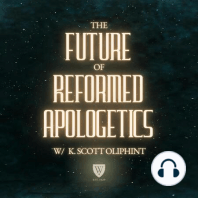23 min listen

The Epistle to the Romans – Episode 2: Gaffin, Broekhuizen, and Currie
The Epistle to the Romans – Episode 2: Gaffin, Broekhuizen, and Currie
ratings:
Length:
48 minutes
Released:
Nov 2, 2022
Format:
Podcast episode
Description
In 1959, John Murray, a Scottish systematic theologian at Westminster Theological Seminary, published the first volume of his commentary on the book of Romans, one that John Piper would later call “the most beautiful commentary ever written.” In more than 60 years since it first appeared, Murray’s commentary has changed the way scores of pastors and teachers read and teach the Bible, helping to draw many readers and congregations into deeper communion with their savior. Now Westminster Seminary Press has reprinted John Murray’s commentary on Romans in an beautiful new hardcover edition, updated with a new introduction by Sinclair Ferguson. In this podcast, we’ll revisit this classic text with some of the pastors and teachers it has influenced the most. Along the way, we’ll explore the ways in which the Paul’s letter to the Romans and John Murray’s commentary on that letter help us to understand, to teach, and to preach in the present day. Music Code: LD-NDXFV0XZRVM4F
Released:
Nov 2, 2022
Format:
Podcast episode
Titles in the series (99)
Paul Washer on Conviction: Listen to Paul Washer explore the role of conviction in ministry. Visit to join our online community and access exclusive book deals and other perks. Go to to learn about the new online degrees at Westminster Theological Seminary. by Westminster Seminary Press